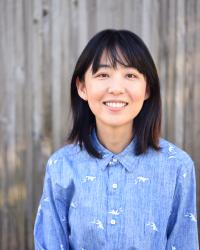
Contact Information
Biography
Ellen Chang is a doctoral candidate in Cinema & Media Studies (CMS) and the 2020-2021 CLIP Fellow at the Department of Comparative History of Ideas (CHID) at the UW, and is currently teaching, in collaboration with Carlos Salazar from the School of Drama, their course series, "Performing City: Transdisciplinary Experiences and Embodied Modes of Research" for the 2020-2021 academic year. Her dissertation-in-progress, entitled "Unseen Sounds, Unheard Images: Daomin, Aesthetic Decolonization, and Contemporary Moving Images in Taiwan," explores the transactional encounter between contemporary Taiwanese video art/installation, cinema, and popular culture as processes of aesthetic decolonization. Her recent work on sound and audio walks sees this relationship as borne out of Taiwan’s complex historical relationship with China. As a simultaneous film scholar and art curator/practitioner, she is moving towards more engaged, sensitive, and practical understandings of how multimedia art reflects the (re-)occurring themes of everyday politics across international geographies. Her project, “Untitled Vignettes: Multisensory Encounter, Audiovisual Symphony, and the Contemporary Multimedia Art of Taiwan,” received the 2019 Digital Humanities Summer Fellowship from the UW Simpson Center for the Humanities. She was the managing editor for Feminist Media Histories: An International Journal in 2020 and continues to serve as a committee member for the UW Taiwan Studies’ 2020 workshop, Land/scaping Taiwan (Non-)Humans, Environment, and Moments of Encounter. She is currently an active member of the Body and Media Graduate Research Cluster and an organizing member of the Feminist Writing Graduate Research Cluster, both funded by the UW Simpson Center for the Humanities.